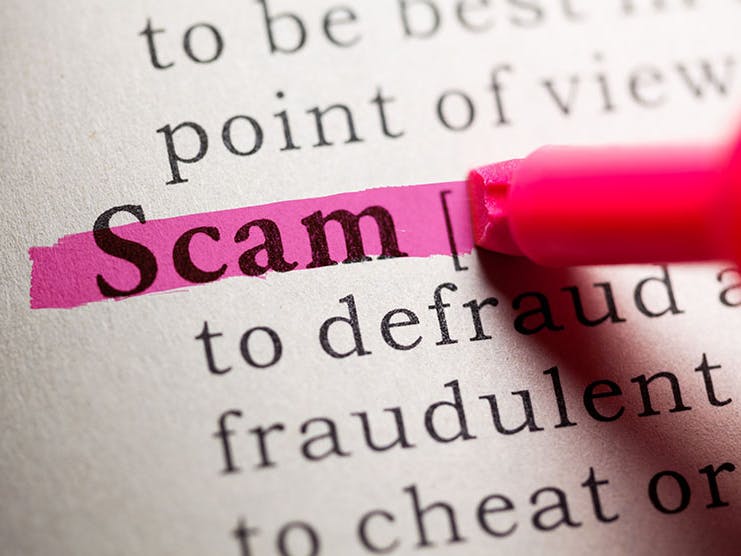
It seems like every time you turn around, there’s some new story about scam artists stealing credit card numbers, banking information, Social Security numbers, and more. Unfortunately, it doesn’t seem about to end any time soon. And, with Medicare being such a confusing program with yearly changes, its beneficiaries are a prime target for crooks. However, you can protect yourself if you know what to expect and what to do when one of these Medicare scammers targets you.
The 7 Most Common Medicare Scams
Although the latest Medicare scams take advantage of the new Medicare cards, criminals have always targeted the same basic information.
- Social Security Number
- Credit card number
- Bank account number
The main difference now is that, in addition to the above three, criminals may also attempt to steal your Medicare number. Previously, of course, this number was the same as your Social Security Number.
These callers are often extremely aggressive. They may call repeatedly or at odd times of the day or night. Often, the language they use is designed to frighten you into action. The best way to deal with them is to hang up immediately. Then, you can call Medicare, Social Security, or the Federal Trade Commission to report this scam attempt.
The most common Medicare scams include:
1. You need to pay for your new card
A caller may claim to be a Medicare representative. This person says that you need to pay a fee to replace your current Medicare card, usually around $25.
2. You have a refund coming
The scammer claims that your insurance company owes you a refund. Before they can pay it, you need to verify your Social Security Number and bank account information.
3. They want to sell you a Part D plan
The caller may ask if you’d like to purchase a new Part D plan or say that if you don’t purchase one, you’ll lose your Medicare coverage. They may also offer to sell you a Medicare Advantage or Medigap plan.
4. You need to verify your personal information
The criminal may call you claiming that you need to verify your Social Security, bank, or credit card information before they can send your new Medicare card. They may also ask you to verify your address.
5. Your new card was lost or compromised in some way
The caller claims there’s a problem with your new Medicare card and may ask for personal information to "replace" it.
6. You need to mail in your old Medicare card
One scam involves demanding you send them your old Medicare card before you can receive the new one.
7. You won free healthcare products or services
The caller may tell you that you’ve won free healthcare products or services, asking for your Medicare number first. This usually occurs over the phone, but some scammers have been known to go door to door.
Each of these scenarios is a scam. The caller only wants to obtain your valuable personal information.
How Can You Protect Yourself?
As they say, knowledge is power. One of the best ways to protect yourself against criminals looking to steal your information is to know what Medicare will and won’t do, and how to protect your information.
1. You don’t have to do anything to get the new Medicare card
These cards are automatically being sent to every beneficiary. The process began on April 2, 2018, and Medicare expects it to take a full year to be complete. New beneficiaries got the first cards. If you want to know when to expect yours, just check your MyMedicare.gov account. Don’t have one? That same link allows you to create one.
2. Medicare will not call you
Medicare rarely calls beneficiaries, and never calls to ask for your banking, credit card, or Social Security information. Anyone who calls you claiming to be from Medicare and asking for this information is a criminal. If you’re worried that there is legitimately an issue that needs your attention, hang up the phone. Then, call 1-800-MEDICARE (633-4227). That way, you know for sure you’re speaking to a Medicare representative. He or she can give you the assistance you need.
3. Protect your Medicare card
Whether it’s the new card or your old one, protect it. If someone calls you and asks for your card number, hang up and call 1-800-MEDICARE. When you get your new card, shred the old one, making sure to destroy the number.
4. Verify Medicare plan offers
If someone calls and offers you a Part D, Medicare Advantage, Medigap, or any other health plan, hang up and check the Plan Finder page to see if the plan exists.
5. Don’t give your Medicare number in exchange for freebies
If the service or product is free, they shouldn’t need your Medicare information, should they?
6. Medicare won’t call to verify your address
The new cards are going to whatever address Medicare has on file. If you aren’t sure yours is correct, contact Social Security at 800-772-1213. You can also update – or create – your Social Security account online.
7. Review Your Medicare Statements
One of the things these criminals use your information for is billing Medicare for fake services. Review your statement carefully and report any entries you believe may be fraudulent.
How to Report Fraud
If you become the target of one of these criminals, you can help protect yourself and others by reporting the incident to Medicare and/or the Federal Trade Commission (FTC). You can also tell Senior Medicare Patrol about it. They protect beneficiaries in every state and can even help you get a new Medicare number if necessary.
Speak with a Licensed Insurance Agent
Mon-Fri 8:00am-8:00pm | Sat 9:00am-5:00pm EST



